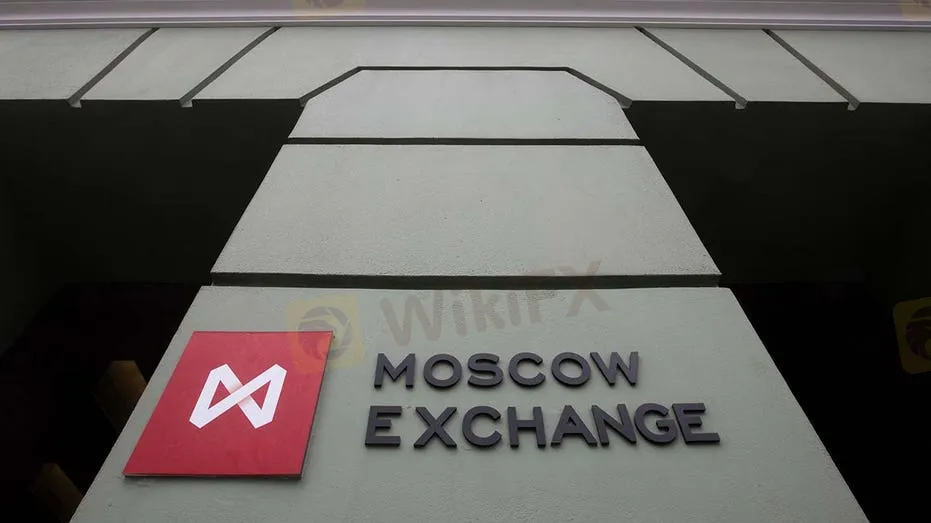简体中文
繁體中文
English
Pусский
日本語
ภาษาไทย
Tiếng Việt
Bahasa Indonesia
Español
हिन्दी
Filippiiniläinen
Français
Deutsch
Português
Türkçe
한국어
العربية
Moscow Exchange’s Forex Market Grows 20.4% in August
Abstract:MOEX's forex market trading volume hit RUB 20.9 trillion in August. The total trading volumes across all markets grew 7.3% to RUB 81.2 trillion.

The forex market trading volume of the Moscow Exchange (MOEX), Russias largest exchange group, surged 20.4% to RUB 20.9 trillion in August.
Take Advantage of the Biggest Financial Event in London. This year we have expanded to new verticals in Online Trading, Fintech, Digital Assets, Blockchain, and Payments.
In July, the total trading volume in the market slipped away from recovery, dropping 3% to RUB 17.3 trillion.
Earlier in June, forex demands on MOEX had recovered to RUB 17.8 trillion from the RUB 16.1 trillion generated in trading volumes in May.
The trading volume figures for August 2022 published by MOEX on Friday disclosed that forex spot trading volume shot up 1.9% to RUB 8.4 trillion.
Furthermore, swap trades and forwards volume reached RUB 12.5 trillion, which is a 37.2% increase.
Across Board
On the whole, total trading volumes across all markets on MOEX climbed by 7.3% to RUB 81.2 trillion in August 2022. In July, the overall markets had generated RUB 75.7 trillion in trading volumes.
“Top risers in trading volumes were the bond market (up 35.9%), precious metals market (up 21.3%), FX market (up 20.4%), equity & bond market (up 15.5%) and money market (up 5.5%),” Moscow Exchange wrote in its financial report.
Performance in Equity & Bond Market
According to MOEX, total trading volume on the equity and bond market in August surged by a quarter (25.4%) to reach RUB 1,872.1 billion as against RUB 1,492.7 billion in July.
The exchange noted that 57 new bonds were issued in August, and they generated a combined value of RUB 1,183.9 billion, with overnight bonds accounting for RUB 700.1 billion of this figure.
Last month, the Moscow Exchange recorded 44 new bond issues with a combined value of RUB 506.3 billion.
Furthermore, MOEX disclosed that the trading volume in shares, depositary receipts and investment fund rose by 15.5% to RUB 887 billion from Julys RUB 767.7 billion.
Farther in June, the figure in this regard came in at RUB 909.3 billion.
Additionally, the average daily trading volume (ADTV) in this category reached RUB 38.6 billion, which is a 5.5% increase from Julys RUB 34.5 billion.
“Turnover in corporate, regional and sovereign bonds grew by 35.9% to RUB 985.1 billion (July 2022: RUB 725.0 billion). ADTV was RUB 42.8 billion (July 2022: RUB 34.5 billion),” MOEX explained.

Disclaimer:
The views in this article only represent the author's personal views, and do not constitute investment advice on this platform. This platform does not guarantee the accuracy, completeness and timeliness of the information in the article, and will not be liable for any loss caused by the use of or reliance on the information in the article.
Read more

Exposed: Deceptive World of Fake Trading Gurus – Don’t Get Fooled!
The internet is inundated with advertisements and promotions from self-proclaimed trading gurus who promise to teach you how to become a successful trader and earn a substantial secondary income. These individuals often claim that their trading techniques can make you rich, even if you have zero experience. However, these assertions are typically false, and many people fall victim to these scams. This article aims to expose these fake trading gurus, explain how they operate, and provide tips on how to avoid being scammed.

Navigating the Intersection of Forex Markets, AI Technology, and Fintech
The financial world is transforming, driven by the rapid integration of artificial intelligence (AI) and innovative fintech solutions. This change is most apparent in forex markets, where algorithmic trading and deep learning are redefining strategies, risk management, and decision-making. In this article, we explore how AI-driven technologies are not only revolutionizing forex trading but are also propelling fintech innovations that enhance customer experiences, bolster security, and unlock new market opportunities.

The One Fear That’s Costing You More Than Just Profits
The fear of missing out (FOMO) is NOT what you think it is! Read the three lesser-discussed components that contribute greatly to FOMO trading!

Why More People Are Trading Online Today?
Discover why online trading is booming with tech, AI, and a push for financial freedom. From stocks to crypto, it’s a thrilling hustle for all.
WikiFX Broker
Latest News
How Crypto Trading Transforms FX and CFD Brokerage Industry
UK would not hesitate to retaliate against US tariffs - No 10 sources
Navigating the Intersection of Forex Markets, AI Technology, and Fintech
Exposed: Deceptive World of Fake Trading Gurus – Don’t Get Fooled!
The One Fear That’s Costing You More Than Just Profits
Currency Calculator







